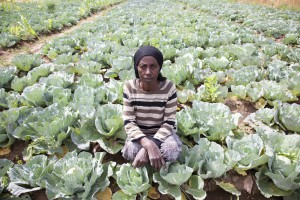Editorial Comment: Agric produce import ban must be in phases

 THE import ban imposed on agricultural products introduced by government a fortnight ago meant to promote the growth of the local industry is a positive step forward.
THE import ban imposed on agricultural products introduced by government a fortnight ago meant to promote the growth of the local industry is a positive step forward.
For years local producers have watched their market being eroded by cheap imports from neighbouring countries while their produce — at times of even higher quality as compared to the cheap imports — found no takers.
While the decision is meant to protect local farmers and put a stop to the importation of goods that as a country ordinarily should be able to produce, the way it was done could have been refined.
The immediate introduction of the ban has had negative implications on vendors and retailers who had already placed their orders at the time the ban was announced and stand to lose thousands of dollars in potential revenue because their orders can no longer be allowed into the country.
The government could have introduced the ban in a phased approach; say maybe introduce the ban over a three-month period in order to ensure that there were no abrupt supply disruptions along the way like what is beginning to happen.
For a country that used to be the bread basket of Southern Africa, feeding ourselves should not be so much of an issue.
While it is critical that local farmers are supported by creating an environment where they can easily sell their produce, doing so should be carefully planned in order to avoid shortage.
With the country having reclaimed its land through the successful land reform in early 2000, it is important that farmers start utilising that God-given natural resource and start producing products to feed the nation.
Local producers have for long been complaining about the influx of cheap imports but now it is the right opportunity for them to stand up and be counted. The time for local producers to mourn is over. It’s all work now.
There is surely no reason why we should as a country continue to import onions and potatoes yet we have fertile soils and good weather.
Government should crack the whip on farmers that are not fully utilising the land they were given.
Presenting the 2014 National Budget last November Finance Minister Patrick Chinamasa said imports would continue to grow faster than exports, totalling $6,6 billion by October 2013, against $6,1 billion realised during the same period in 2012.
Chinamasa said due to the fast growth in imports against depressed exports, the current account deficit continues to widen to $3,8 billion and has already surpassed the 2013 projected deficit of $2,5 billion.
The only way we can deal with imports is to ensure that we first produce enough for ourselves.
The government banned imports of fresh fruit and vegetables last week saying increased local production would be able to meet domestic demand.
A majority of fruit vendors were importing tomatoes, mangoes, grapes and apples from neighbouring South Africa.
A survey by this paper last week showed that vendors and supermarkets were failing to get enough fresh produce from local suppliers to meet demand.
This has caused hoarding of produce like onions that have a long shelf life.
Vendors and supermarkets said while it was a good idea for the government to support local producers, the ban was a huge inconvenience to consumers and it was coming at a cost as the prices of some commodities had begun rising.
The exploitation of consumers could have been avoided if the government had gradually phased out imports.









Comments